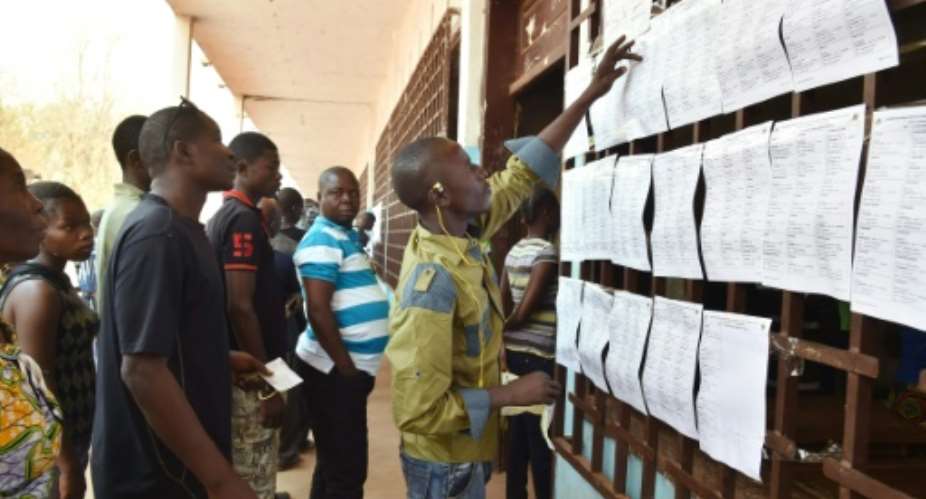Bangui (Central African Republic) (AFP) - Rivals in the Central African Republic's hotly-contested presidential run-off, seen as crucial to usher in peace after decades of turmoil, on Wednesday traded accusations of fraud, influence peddling and intimidation.
The two candidates are both former prime ministers who have campaigned on promises to restore security and boost the economy in the mineral-rich but dirt-poor and chronically unstable country.
The first round on December 30 was won by Anicet Georges Dologuele, a 58-year-old former central banker known as "Mr Clean" for his attempts to bring transparency to murky public finances when in office. He took 23.78 percent of the vote.
He faced off against Faustin Archange Touadera, also 58. The former maths professor, who is standing as an independent, surprised everyone by coming second in the first round with 19.4 percent.
A spokesman for Dologeule's party told a news conference they had "tangible proof of fraud organised by the adversary in (the capital) Bangui and in the provinces."
"Fake polling stations were set up," Saturnin Ndomby said.
"We have received reports of several cases of intimidation with chiefs of armed militias patrolling city districts and villages or in polling stations to influence voting."
He also rejected allegations that Dologuele had held secret talks with a top official of the country's election authority, Julius Ngouade Baba, late on Monday on rigging the results.
Ndomby denied such a meeting took place, adding that Touadera's camp was trying to "fuel a climate of tension ... and undermine the credibility of the institutions" organising the election.
The Central African Republic's most recent episode of bloodletting was sparked by the March 2013 ousting of veteran president Francois Bozize, a Christian, by the mainly Muslim Seleka rebel alliance.
The coup triggered a series of revenge attacks involving Muslim forces and Christian vigilante groups known as "anti-balaka" (anti-machete) militias.
Thousands were slaughtered in the spiral of atrocities that drove about a tenth of the population of 4.8 million people to flee their homes.





 Election 2024: Ghanaians will vote to erase Akufo-Addo’s horrifying legacy – Nii...
Election 2024: Ghanaians will vote to erase Akufo-Addo’s horrifying legacy – Nii...
 BP killed ex-Weija-Gbawe MCE – Tina Mensah reveals
BP killed ex-Weija-Gbawe MCE – Tina Mensah reveals
 Limited voter registration exercise: NDC slams EC over mass technical challenges
Limited voter registration exercise: NDC slams EC over mass technical challenges
 UK, America will one day come to Ghana to borrow Akufo-Addo to be their presiden...
UK, America will one day come to Ghana to borrow Akufo-Addo to be their presiden...
 EOCO returns fire at OSP over Cecilia Abena Dapaah’s money laundering case
EOCO returns fire at OSP over Cecilia Abena Dapaah’s money laundering case
 Anti-corruption endeavours must be rooted in systems, investigations and prosecu...
Anti-corruption endeavours must be rooted in systems, investigations and prosecu...
 We’ve not introduced 1% cybersecurity levy on banking transactions – BoG
We’ve not introduced 1% cybersecurity levy on banking transactions – BoG
 EU hits out at sidelining of Chad election observers
EU hits out at sidelining of Chad election observers
 ‘Be calm; we’re having engagements on new fee implementation’ — KNUST SRC assure...
‘Be calm; we’re having engagements on new fee implementation’ — KNUST SRC assure...
 Bawumia is compassionate, unique politician without corruption tag — Miracles Ab...
Bawumia is compassionate, unique politician without corruption tag — Miracles Ab...
